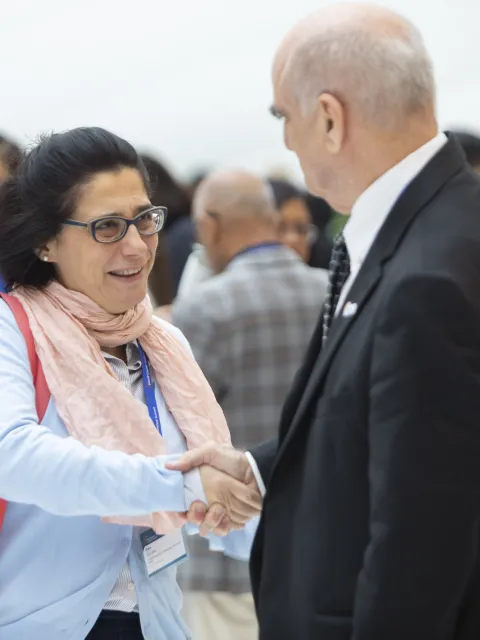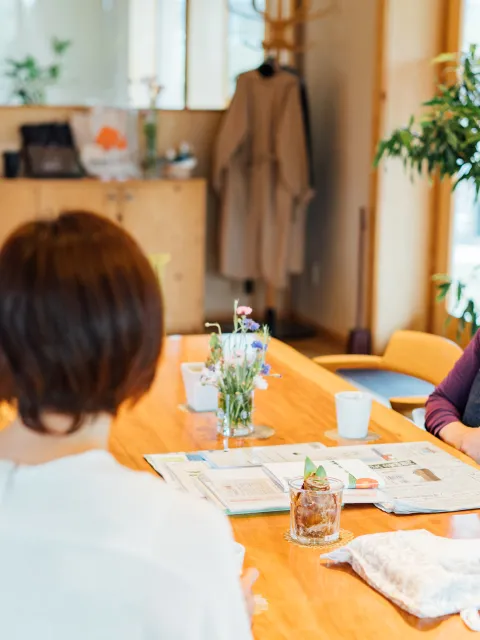Bringing the Cancer Resolution to Life: Mobilising National Advocacy
In 2019, through the Cancer Advocates programme, UICC was proud to support members across the globe to refine their advocacy strategies or develop new, more effective ones.

At the conclusion of their learning journey, UICC celebrates the remarkable stories of our members who stepped up efforts and took action to raise the profile of cancer in their countries.
Earlier this year, key events were organised in conjunction with World Cancer Day, held on February 4th each year. Many of the 20 UICC Member organisations engaged in the Cancer Advocates programme took action seeking to strengthen national advocacy platforms and advance progress on the serious inequities faced by people in low- and middle-income countries in accessing timely, effective healthcare. This could prove to essential at a time when the coronavirus pandemic further emphasises the need for effective outreach in favour of cancer control and care.
“It is inspiring to see the commitment and motivation of these individuals and organisations to push for change, and a privilege to be able to provide support through what is now known as the Cancer Advocates programme,” says Dr Kirstie Graham, Director of Capacity Building at UICC. “Whilst the contexts are hugely varied and political priorities shift, these dedicated organisations are continually embracing the challenge and moving the needle. Their work has shown what effective advocacy can do.”
Since its launch in 2018, the Cancer Advocates programme, formerly known as Treatment for All, has provided guidance and technical support to selected UICC members to bring about policy change through effective advocacy. Drawing on a combination of guided peer-to-peer learning, in-depth resources, an in-person workshop and facilitated mentorship opportunities, the programme supports UICC members to improve the knowledge and skills they need to be effective advocates.
The Samoa Cancer Society is one of the selected Advocates. On the heels of recent advocacy wins, such as the adoption of palliative care guidelines and the establishment of a cancer registry, the Samoa Cancer Society organised a series of activities to mark the launch of its new advocacy strategy. The goal is to introduce palliative care services to the national health system.
“We realised that we need to get the community behind us,” says the Society’s CEO Shelley Burich. “Thanks to the community, we can be much stronger with the message on palliative care.” This approach formed the foundation for the successful launch of the Society’s national advocacy strategy, including appearing on television and the radio and directly engaging the Minister of Health, on World Cancer Day. They also promoted a radio event highlighting stories from cancer patients and their caregivers.
The Kenyan Network of Cancer Organisations (KENCO) launched a national advocacy campaign aimed to increase coverage of cancer services and community awareness, especially in marginalised areas of the country. In line with the objectives of their advocacy efforts, they held an awareness event in the rural county of Nyandarua, in collaboration with the National Cancer Institute and representatives of the National Cancer Control Programme, mobilising the local community and religious leaders. The event and the launch of the campaign were also accompanied by the delivery of cervical and breast cancer screening, made possible by the strong collaboration between KENCO and the National Cancer Institute in Kenya.
In Latin America, the Salvadorian Association for the Prevention of Cancer (Asociación Salvadoreña para la prevención del Cáncer or ASAPRECAN) launched the National Alliance for the Prevention and Control of Cancer, aiming to improve national legislation on cancer prevention and control, and ensuring sustainable financing in the years to come.
Dr Lisseth Ruíz Campos, Director of ASAPRECAN, says: “We benefitted from learning tools, continuous support from UICC and widespread enthusiasm for the initiative across all regions. The Cancer Advocates programme was also instrumental in strengthening the regional cancer community in Latin America.” ASAPRECAN also coordinated the organisation of a public webinar with Cancer Advocates from Costa Rica, El Salvador, Mexico and Peru to present their advocacy plans and strategies.
In Peru, newly elected lawmakers from across the political spectrum were brought together to present and advocate for the adoption of the health financing bill for complex diseases, such as diabetes, obesity, hypertension and heart disease, which are caused by the interaction of multiple genes with each other and with environmental factors.
"We want this advocacy initiative to be an agent of change, with concrete proposals to allocate funds for a comprehensive approach to patients with cancer and other non-communicable diseases,” explained Karla Ruíz de Castilla, Director of Esperantra and organiser of this engagement event with lawmakers.
Those are just a few examples of many, serving to illustrate how effective advocacy has the power to make a tangible difference in people’s lives from better cancer data for public health use to improving access to detection, diagnosis, treatment and care.
These are the outcomes the Cancer Advocates programme is designed to enable. Later this year, the programme plans to open a new call for expressions of interest from a new round of dedicated advocates.
Find out more about the Cancer Advocates programme
Read the 2017 WHO Cancer Resolution
Read the UICC statement on the Cancer Resolution
Last update
Monday 20 April 2020
